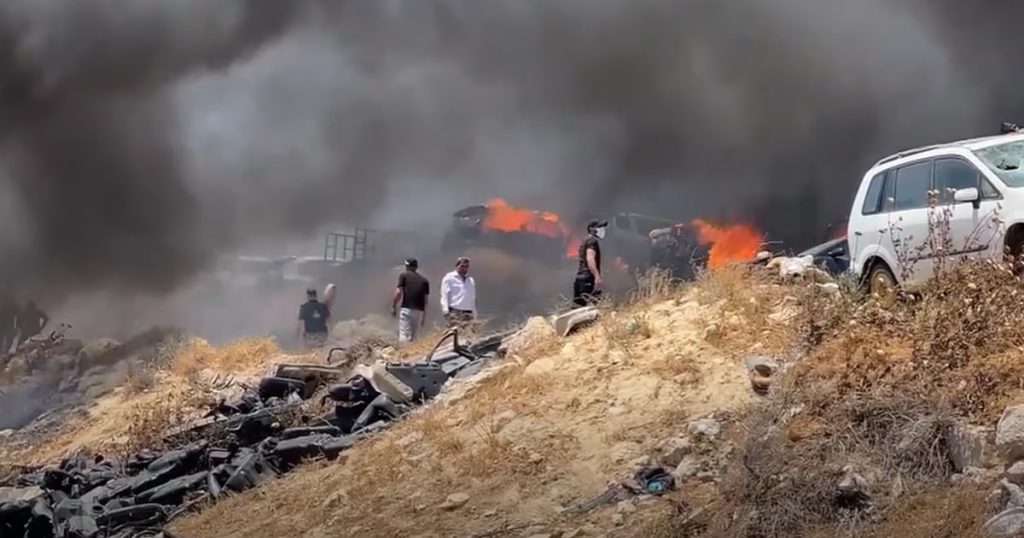Mona Saleh, a grieving mother-in-law in the West Bank, accuses Israeli authorities of taking advantage of the distraction caused by the Gaza war to intensify their efforts to “colonize” Palestinian territory. She fears returning to her farmland due to past attacks by settlers, and the Israeli Defense Forces declined to comment on her claims. The IDF spokesperson suggested that any unlawful instances involving Israelis should be intervened upon by soldiers, attributing the rise in violence to Hamas attacks. However, the United Nations Office for the Coordination of Human Affairs reported over 1,000 settler attacks on Palestinians since the war began, displacing many. Palestinian mayor Sayel Kanan highlighted the increase in Israeli settler violence following the Gaza war and the toll it has taken on Palestinian lives.
The conflict in the West Bank is characterized by a disproportionate number of Palestinian casualties compared to Israelis since the start of the Gaza war. The ongoing violence has resulted in a significant loss of life among Palestinians, with hundreds being killed by the Israeli military and settlers. The United Nations reported a sharp increase in violence in the region, making it the deadliest year for Palestinians in the West Bank since 2008. Recent attacks by Israeli settlers have further exacerbated tensions, leading to civilian casualties and displacements in Palestinian villages. The settler strategy of creating Jewish settlements in the West Bank is seen as a means of reclaiming ancestral land, a move that continues to provoke conflict with the Palestinian population.
Yehuda HaKohen, an Israeli settler, justifies the establishment of Jewish settlements in the West Bank as a means of securing their presence on what they view as historically Jewish land. While condemning violence against Palestinians, HaKohen defends the settlers’ right to establish communities in the West Bank, emphasizing their desire to maintain control over the territory. The settler perspective views the land as rightfully belonging to them, despite international condemnation of the occupation and land seizures. HaKohen’s commitment to the settler cause reflects a broader ideological perspective that prioritizes territorial claims over peace efforts. The tension between settlers and Palestinians continues to fuel violence and displacement.
The United Nations’ ruling that Israel’s occupation of the West Bank is illegal underscores the contentious nature of the conflict and the need for a resolution to end the protracted violence. Israeli Prime Minister Benjamin Netanyahu’s dismissal of such rulings further complicates efforts to address the underlying issues fueling the conflict. In towns like Burqa, where settlers have surrounded Palestinian communities and blocked essential routes, the impact of settler violence is acutely felt. Mayor Sayel Kanan’s account of the situation highlights the challenges faced by Palestinians living under the threat of settler attacks and inadequate protection from the Israeli military. The ongoing conflict reflects a wider struggle for control and territorial dominance, with both sides entrenched in opposing narratives and claims to the land.
The plight of Palestinian farmers like Bilah Saleh, who was killed by settlers, underscores the vulnerability of individuals caught in the crossfire of the conflict. The impact of settler violence on Palestinian livelihoods and communities is profound, leading to fear, displacement, and loss of life. Mona Saleh’s account of the harassment and threats faced by farmers at the hands of settlers reveals the daily challenges endured by Palestinians in the West Bank. Despite international condemnation and calls for peace, the cycle of violence and land disputes continues to escalate, with both sides entrenched in their respective positions. The need for a durable solution that addresses the root causes of the conflict and ensures the safety and rights of all parties involved remains urgent.


